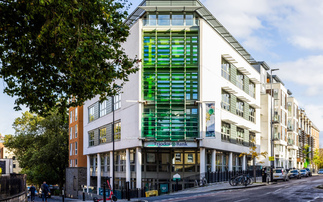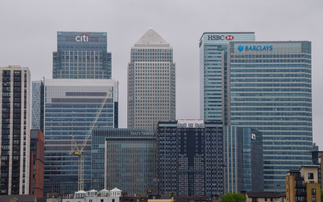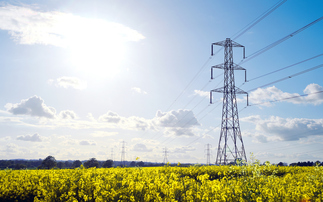Latest edition of investment giant's Climate Progress Dashboard warns coronavirus crisis could undermine efforts to put global economy on track for net zero emissions
Schroders has today published the latest edition of its Climate Change Dashboard, warning that without rapid structural changes to the global economy the greenhouse gas emissions reductions that have resulted from the coronavirus crisis will prove short-lived.
The Climate Progress Dashboard, which has been updated each quarter since its launch in 2017, assesses the progress governments and industries are making towards the Paris Agreement's goal of limiting temperature increases to below 2C by 2100, providing projected temperature trajectories for 12 policy areas.
The latest edition concludes that despite the sharp reduction in greenhouse gas emissions experienced in the first half of the year, projected temperature increases remain unmoved at 3.9C - far in excess of the Paris Agreement's goal of 'well below' 2C.
The report notes that the coronavirus crisis has triggered progress in some areas. For example, Schroders assessment of carbon pricing trends, oil and gas investment, and the management of fossil fuel reserves all points to lower temperature increases than those projected in the last edition of the Dashboard.
However, this progress is offset by higher projected temperatures relating to future renewables capacity, which could be hampered by the escalating economic crisis, and future fossil fuel production, which could be increased by stimulus packages in carbon intensive economies.
The report notes that while the EU has announced that up to three-quarters of its Covid-19 stimulus plan will be tied to the delivery of climate targets, there is evidence that the global focus on climate change has slowed.
"On the face of it, the Covid-19 crisis appears to have sparked a turning point in global greenhouse gas emissions," said Andrew Howard, global head of sustainable investment at Schroders. "If current lockdown trajectories continue, global energy demand may fall by six per cent and carbon emissions by eight per cent, according to data from the International Energy Agency.
"However, there is also an unprecedented economic cost. The International Monetary Fund has predicted the global economy could shrink by as much as five per cent this year. It has revealed unemployment levels have already reached the highest levels seen in at least half a century. We believe that as economies recover from the Covid-19 crisis, falls in emissions are likely to be reversed, if recoveries from past crises provide any guide. Tougher structural changes are needed if we are going to avert the equally devastating long-term impacts of the climate crisis."
The report echoes a study published last week in the journal Nature Climate Change which warned that without an ambitious 'green recovery' the reduction in emissions caused by the coronavirus crisis would have a negligible impact on temperatures.
The study, which drew largely on Google and Apple mobility data, detailed how the impact of lockdown measures on emissions are proving short-lived and as such temperature projections for 2030 are only 0.01C lower than was previously the case.
"The direct effect of the pandemic-driven [lockdown] will be negligible," said the researchers. "In contrast, with an economic recovery tilted towards green stimulus and reductions in fossil fuel investments, it is possible to avoid future warming of 0.3C by 2050."
The Net Zero Investment Hub is brought to you in partnership with Schroders, as part of its support for the world's first Net Zero Festival this autumn. All the content on the Hub is fully editorially independent unless otherwise stated.
You can find out more about the Net Zero Festival and reserve your place here.










